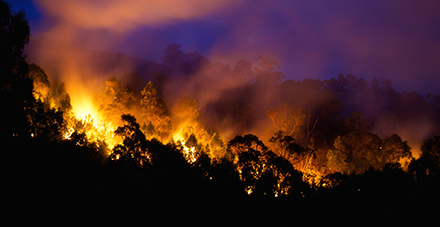Extreme fire weather days have increased in Australia by 56% over the last four decades, according to new research from an international team of scientists, including CSIRO, Australia’s national science agency.
The results, published today, shows that the fire season length across Australia has increased by 27 additional days over the last 41 years (1979-2019).
While the Australian fire season has increased by 20% over the last 40 years, globally, the average increase was found to be 27%. The frequency of days with extreme fire weather globally averaged a 54% increase over the same 40-year period, compared to Australia’s increase of 56%.
CSIRO researcher Dr Pep Canadel not that “our study demonstrates the importance of understanding how trends in fire weather can help first responders, policy makers, and the community better prepare for, and respond to bushfires. It also highlights the importance of curbing global carbon emissions’’.
“Australia has always experienced extreme bushfires, but the Black Summer of 2019/2020 highlighted an increasing trend in fire activity,” Dr Canadell said.
“These new findings show that the whole of Australia has seen an increase in extreme fire weather events and extreme fire days over the last four decades.”
The findings bring into sharp focus comments made by Climate Councillor and former Commissioner of Fire & Rescue NSW Greg Mullins address at a recent three-day conference in Melbourne on ‘Fire and Climate’.
He says much more money needs to be spent on preparations to mitigate against fires in the first place.
He said the fire agencies community needed to “band together to make a bigger pie” instead of “fighting for the crumbs on the table”.
Mr Mullins said that unfortunately, current fire management continued to have a clash of cultures between foresters, fire fighters, land managers and scientists.
“These should be complementary, not competing. There should be no endless, pointless arguments about who is responsible,” he said.
“In particular, we need clarity on future strategies on prescribed burning as it will become even more vital.”
Maybe, just maybe, someone in authority might be listening this time, but don’t bet on it.
Competing interests in the debate will never allow our fire agency communities to effectively work together.
Black Saturday, and countless other fire disasters, proved that.







